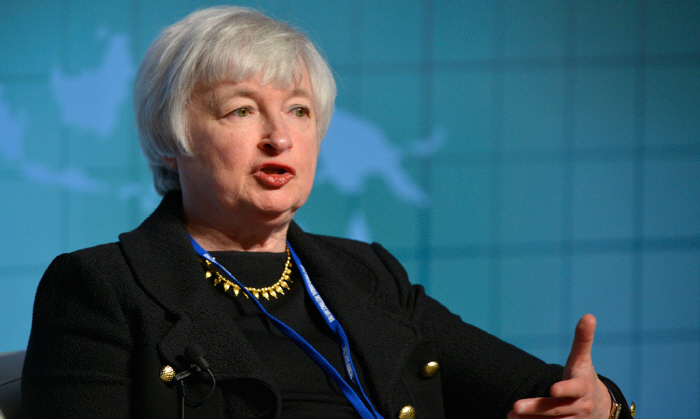The Fed took a pass on raising rates last week, citing concern that recent global and financial developments would restrain activity and put further downward pressure on inflation. At the same time, its updated projections contained lower inflation, a lower long-run unemployment rate, and a lower median path for the fed funds rate, all of which contributed to the dovish feel.
Fed dovishness is typically positive for financial markets - pulling up both equity and bond prices. However, the tone in markets this week has been decidedly risk-off. While the Fed's statement didn't tell us anything we didn't already know about the downside risk to the global economy, the Fed's message appears to have focused market attention on it.
Continued weak Chinese data, the emissions scandal at Volkswagen, and expectations of a U.S. government shutdown next week all added to the bearish tone in markets.
This tone lasted until an illuminating speech by Fed Chair Janet Yellen on Thursday, which helped shed some clarity on the Fed's intentions. Yellen reiterated the familiar themes - the economy is close to full employment, but inflation is undershooting target, which she attributed mostly to the temporary effects of falling energy prices and a strong dollar.
While noting the uncertainty around inflation dynamics, she reiterated that the FOMC needed to see continued above potential economic growth, in order to provide confidence that inflation return to target over time. She noted that even should the unemployment rate (5.1%) decline modestly below its long-run level - median FOMC estimate now 4.9% - this would be beneficial for returning inflation to target, while also possibly reducing some of the supply-side damage that has appeared to occur to the economy in recent years
In terms of foreign developments, she stated that the FOMC did not expect the impact on the U.S. economy to be large enough to have a significant effect on the path for policy. Finally, she acknowledged that most of her colleagues and herself anticipated that it would likely be appropriate to raise the target for the fed funds rate later this year.
The takeaway from Yellen's speech is that a rate hike remains firmly on the cards for 2015, with even current very sluggish global growth seemingly insufficient to delay the Fed into 2016. As she puts it, the reasons to go sooner rather than later are to prevent a situation where the Fed has to play catch up and tighten abruptly in order to cool the economy, and to prevent inappropriate risk-taking that could then undermine financial stability.
With Yellen's speech as a guide, there are a few things to keep an eye on going into the October and December meetings. First, the flow of domestic data will determine whether or not the Fed hikes. As things stand, the U.S. economy is on particularly firm footing. Economic growth is tracking at 2.5% for the year, with growth for the second quarter revised up from 3.7% to 3.9% this week.
Secondly, in terms of global growth, we would need to see a material deterioration above and beyond current sluggish growth in order to delay the Fed. This could mean an unexpected slowdown in the euro area, where data continues to come in quite solid - composite PMI at 53.9 this week. Alternatively, another step down from already weak Chinese growth, one which sends oil prices below their lows of the year, could be something that sways the Fed.
Lastly, market pricing around the time of the FOMC meeting should continue to price in a decent probability of a rate hike. It isn't that markets are dictating U.S. monetary policy, it's that given global fragility, the Fed can't afford to blindside them right now. Assuming these key elements are present, a rate hike this year is still very much in the cards. With this additional clarity and renewed confidence in the U.S. outlook from Yellen, it was risk back on for markets on Friday. Better growth trumps the possibility of zero interest rates ending a little earlier.



 Gold Prices Fall Amid Rate Jitters; Copper Steady as China Stimulus Eyed
Gold Prices Fall Amid Rate Jitters; Copper Steady as China Stimulus Eyed  MAS Holds Monetary Policy Steady as Strong Growth Raises Inflation Risks
MAS Holds Monetary Policy Steady as Strong Growth Raises Inflation Risks  Fed Governor Lisa Cook Warns Inflation Risks Remain as Rates Stay Steady
Fed Governor Lisa Cook Warns Inflation Risks Remain as Rates Stay Steady  Bank of Japan Signals Cautious Path Toward Further Rate Hikes Amid Yen Weakness
Bank of Japan Signals Cautious Path Toward Further Rate Hikes Amid Yen Weakness  Why Trump’s new pick for Fed chair hit gold and silver markets – for good reasons
Why Trump’s new pick for Fed chair hit gold and silver markets – for good reasons  FxWirePro: Daily Commodity Tracker - 21st March, 2022
FxWirePro: Daily Commodity Tracker - 21st March, 2022 



























